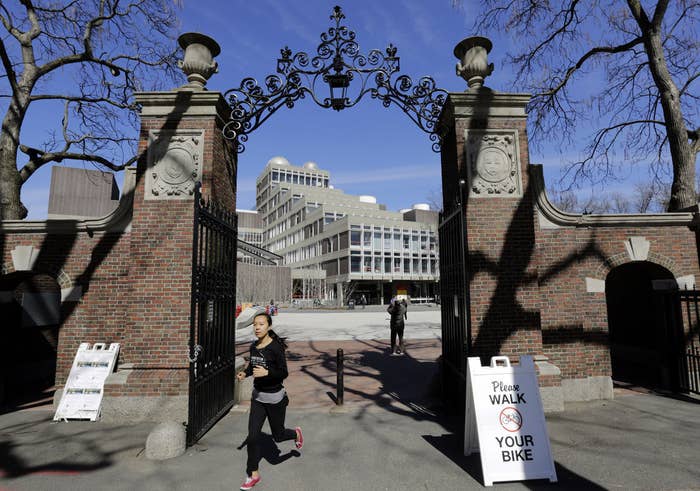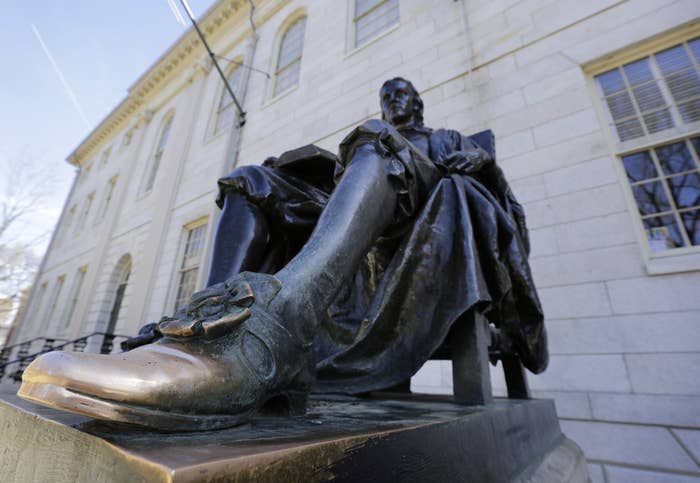
Starting in 2017, Harvard University will bar new students who join "unrecognized" all-male and all-female groups from holding leadership positions in recognized student organizations and athletic teams, the university said Friday. They will also be ineligible to receive the dean's endorsement letters for scholarships and fellowships.
Citing discrimination by single-gender organizations such as final clubs, fraternities, and sororities, Harvard President Drew Faust said in a letter Friday that such groups "encourage a form of self-segregation that undermines the promise offered by Harvard's diverse student body."
Faust approved the sanctions recommended by Danoff Dean of Harvard College Rakesh Khurana who said that single-gender social organizations contributed to a "disempowering and exclusionary" student culture on campus.
The recommendations were:
For students matriculating in the fall of 2017 and thereafter: any such
students who become members of unrecognized single-gender social organizations will not be eligible to hold leadership positions in recognized student organizations or athletic teams. Currently enrolled students and those who are matriculating in the fall of 2016 will be exempt from these new policies.
For students matriculating in the fall of 2017 and thereafter: any such students who become members of unrecognized single-gender social organizations will not be eligible to receive the Dean's endorsement letters for those fellowships that require such endorsements. Currently enrolled students and those matriculating in the fall of 2016 will be exempt from these new policies.
Khurana also said that the university would work with single-gender social organizations to transition to "gender inclusive and open membership."

Faust said that while fraternities, sororities, and final clubs were not formally recognized by the college, they could not be ignored as they played an important role in student life.
Citing Harvard's decision to withdraw recognition of male final clubs in 1984, Faust said the university could not "endorse selection criteria that reject much of the student body merely because of gender."
Faust said that such practices "do not serve our students well when they step outside our gates into a society where gender-based discrimination is understood as unwise, unenlightened, and untenable."
She said that while the university would not prohibit students from joining such organizations, the college also had the right to determine that its funds and resources would be allocated only to organizations that contributed to an inclusive campus.
In making his recommendations, Khurana acknowledged that fraternities and sororities "provided a place of comfort and identity" to many students.
"But we do expect leaders of our athletic teams, our recognized student groups, and those seeking a Dean's endorsement to share in the College's responsibility of fostering a non-discriminatory culture at Harvard," he wrote.
